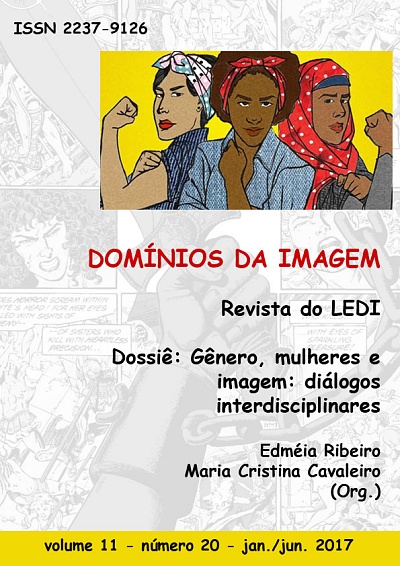Motion picture, representation, power relations: an analysis of the movie “Second Mother”
DOI:
https://doi.org/10.5433/2237-9126.2017v11n20p298Keywords:
Images, Power, Social relations.Abstract
Our aim is to discuss power relations observing the images on the movie The second mother (Que Horas Ela Volta?, Anna Muylaert, 2015), constructed from social relationships that involves domestic work – represented by the character Val –, using the notion of power proposed by Foucault (1979, 2003). We seek to understand how power acts over the body of an individual, shaping social behaviour, also considering the role of culture in the process, dialoguing with authors as Elias (1990), Geertz (1989) and Morin (2011). Finally, we will observe how the mise-en-scène composition contributes to the production of sense in congruence with the filmic narrative.Downloads
References
BECKER, Howard S. Falando da sociedade: ensaios sobre as diferentes maneiras de representar o social. Rio de Janeiro: Jorge Zahar, 2009.
ELIAS, Norbert. O processo civilizador: uma história dos costumes. Rio de Janeiro: Jorge Zahar Editor, 1990.
ENGELS, Friedrick. Ludwig Feuerbach e o fim da filosofia clássica alemã. Germinal: Marxismo e Educação em Debate, Salvador, v. 4, n. 2, p. 131-166, 2013.
FOUCAULT, Michel. Microfísica do poder. Rio de Janeiro: Graal, 1979.
FOUCAULT, Michel. Estratégia, poder-saber. Rio de Janeiro: Forense Universitária, 2003.
GEERTZ, Clifford. O impacto do conceito de cultura sobre o conceito de homem. In: GEERTZ, Clifford. A Interpretação das culturas. Rio de Janeiro: LTC, 1989. p. 25-40.
GUATTARI, Felix. Da produção da subjetividade. In: GUATTARI, Felix. Caosmose: um novo paradigma estético. Rio de Janeiro: Ed 34, 1992.
GIDDENS, Anthony. Modernidade e identidade. Rio de Janeiro: Jorge Zahar, 2002.
KONDER, Leandro. O que é dialética. São Paulo: Brasiliense, 1985.
LYOTARD, Jean-François. O pós-moderno. Rio de Janeiro: José Olympio, 1986.
MARCUSE, Herbert. Ideias sobre uma teoria crítica da sociedade. Rio de Janeiro: Zahar, 1972.
METZ, Christian. A significação no cinema. São Paulo: Perspectiva, 1977.
MORIN, Edgar. O cinema ou o homem imaginário. Lisboa: Relógio D´água Editores, 1997.
MORIN, Edgar. O método 4. As ideias: habitat, vida, costumes, organização. Porto Alegre: Sulina, 2011.
QUE Horas ela volta?. Dirigido por Anna Muylaert. Produção de Fabiano Gullane, Caio Gullane, Débora Ivanov e Anna Muylaert. Brasil: África Filmes, 2015. 1 DVD.
SOUZA, Washington Luis. Ensaio sobre a noção de poder em Michel Foucault. Revista Múltiplas Leituras, São Paulo, v. 4, n. 2, p. 103-124, 2011.
Downloads
Published
How to Cite
Issue
Section
License
Domínios da Imagem adopts the Creative Commons Attribution 4.0 International License, therefore, the copyrights related to the published articles belong to the author(s), who grant the journal the exclusive right of first publication.
Under this license it is possible to: Share - copy and redistribute the material in any medium or format. Adapt - remix, transform, and build upon the material, giving due credit and providing a link to the license and indicating if changes were made.











 The works in this journal are licensed under Creative Commons .
The works in this journal are licensed under Creative Commons .